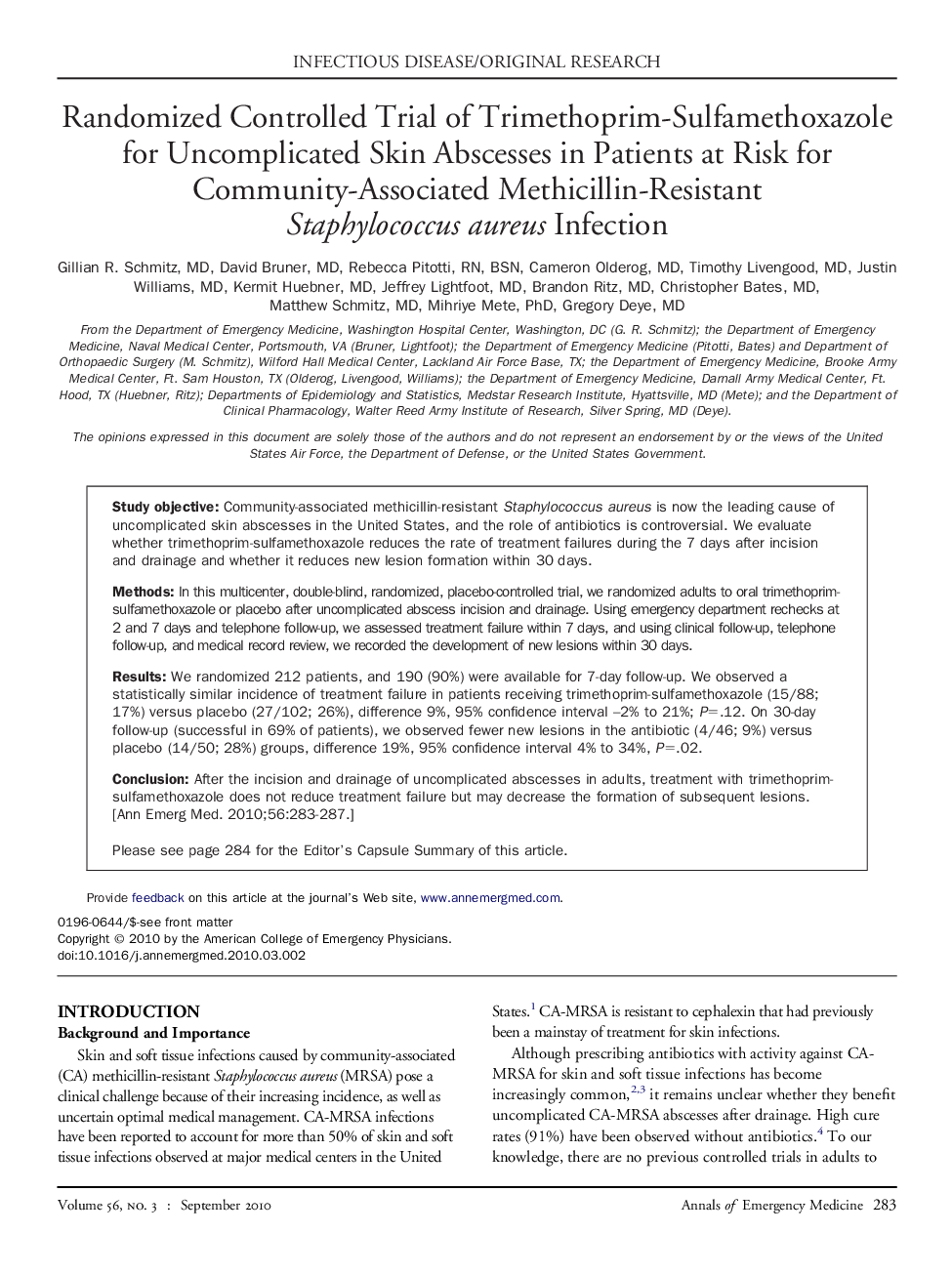| Article ID | Journal | Published Year | Pages | File Type |
|---|---|---|---|---|
| 3231509 | Annals of Emergency Medicine | 2010 | 5 Pages |
Study objectiveCommunity-associated methicillin-resistant Staphylococcus aureus is now the leading cause of uncomplicated skin abscesses in the United States, and the role of antibiotics is controversial. We evaluate whether trimethoprim-sulfamethoxazole reduces the rate of treatment failures during the 7 days after incision and drainage and whether it reduces new lesion formation within 30 days.MethodsIn this multicenter, double-blind, randomized, placebo-controlled trial, we randomized adults to oral trimethoprim-sulfamethoxazole or placebo after uncomplicated abscess incision and drainage. Using emergency department rechecks at 2 and 7 days and telephone follow-up, we assessed treatment failure within 7 days, and using clinical follow-up, telephone follow-up, and medical record review, we recorded the development of new lesions within 30 days.ResultsWe randomized 212 patients, and 190 (90%) were available for 7-day follow-up. We observed a statistically similar incidence of treatment failure in patients receiving trimethoprim-sulfamethoxazole (15/88; 17%) versus placebo (27/102; 26%), difference 9%, 95% confidence interval –2% to 21%; P=.12. On 30-day follow-up (successful in 69% of patients), we observed fewer new lesions in the antibiotic (4/46; 9%) versus placebo (14/50; 28%) groups, difference 19%, 95% confidence interval 4% to 34%, P=.02.ConclusionAfter the incision and drainage of uncomplicated abscesses in adults, treatment with trimethoprim-sulfamethoxazole does not reduce treatment failure but may decrease the formation of subsequent lesions.
